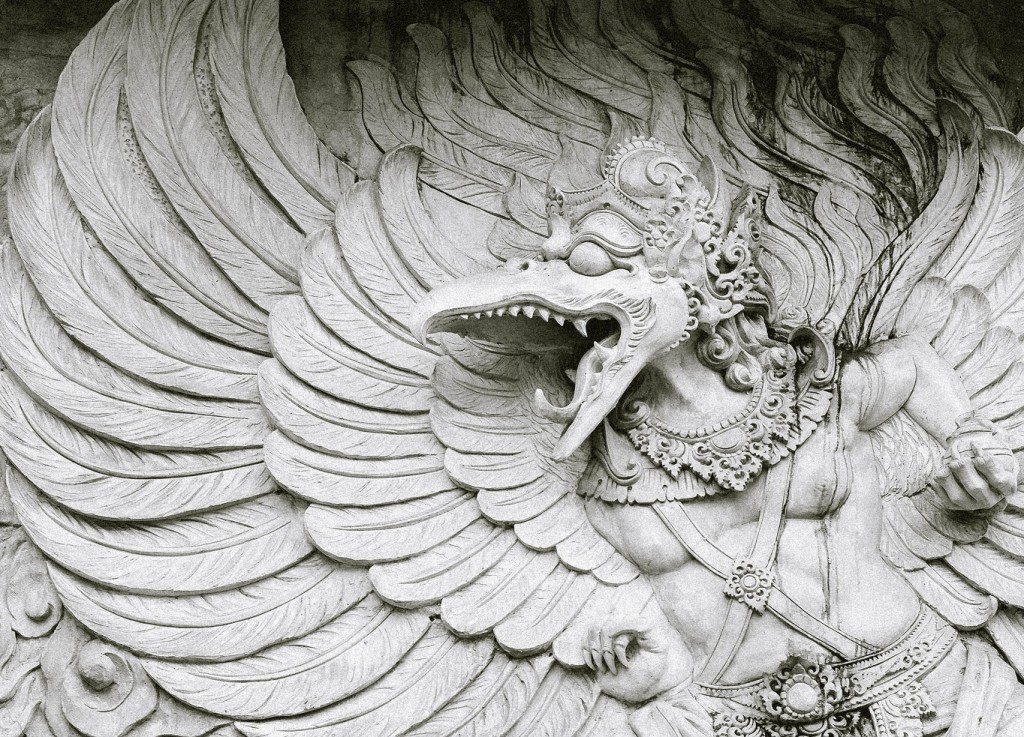
The first thing that Joko Widodo will think about when he wakes up today, the day of his inauguration as president, won’t be Indonesia's relationship with Australia. Nor, for that matter, with the other countries represented at his inauguration. By contrast, as Prime Minister Tony Abbott prepares for his day in Jakarta, he’ll be especially conscious of the importance of a good first contact with the new president.
Abbott’s gesture of attending the inauguration, as his predecessors John Howard and Kevin Rudd did in 2004 and 2009, will make its own statement, while any exchange they might have during the day's crowded agenda will necessarily be focused on delivering some key impressions, and if possible some key messages. It’s good that, thanks to effective work by Australian ministers and officials, and a certain degree of indulgence by outgoing President Yudhoyono, the two leaders don’t have immediate contentious issues to bring to their first encounter (as Rudd brought the
Oceanic Viking asylum-seekers issue to his Inauguration Day encounter with Yudhoyono).
Too often, there has been a tendency on both sides to view the relationship through the lens of challenges in the relationship, and that can overshadow some enduring positive trends and attitudes. Those are worth reiterating, but a preliminary cautionary note is called for.
In recent months, comments on prospects for Jokowi's handling of foreign relations have, rightly, pointed to his lack of experience in the international environment. More recently, in a range of contacts between Jokowi and foreign visitors and diplomats, he hasn’t shown any great level of interest in international issues, except to the extent that those might affect things with which he’s familiar, such as Indonesia's investment and business environment. Given that he’ll have an understandable preoccupation with getting his domestic political arrangements in order, the prospect seems to be for a new president who’ll take some time to develop his own approach to foreign dealings. And a real factor will be that his command of English isn’t yet such as to make him comfortable in meetings, like those in ASEAN, which are conducted in English. Putting those considerations together, there must be a question whether he will attend all the various summits (APEC, G20, East Asia Summit/ASEAN) scheduled in the near future.
It’s probably true to say that the new president has less experience or knowledge of Australia than any of his predecessors. He would have at the most only the sketchiest view of the extent of Australia–Indonesia relations, nor would he have more than the beginning of an idea for how the relationship might be approached in future. He may not announce his cabinet and other appointments for some days, and many of those will have particular significance for Australia, including foreign affairs, trade, defence, agriculture, mining, police, customs and immigration. He has announced his intention to appoint technocrats rather than politicians to some of the key areas and that will bring some collective memory of dealings with Australia into the new administration.
Some of those memories will be positive. These include effective cooperation between the two countries in counterterrorism; their joint promotion of regional initiatives in areas like disaster preparedness, counterterrorism and sustainable fisheries; long-standing defence and development relationships; and extensive assistance to Indonesian agencies dealing with issues including transport safety and security, immigration and finance. But on the other hand, there’ll be memories of issues, including relatively recent issues, where the two countries have had highly-visible fallings-out, notably on boats and spying allegations.
For its part, the Australian government will have clear ideas about where it’ll want to develop the relationship with Indonesia, both for the long term and in the immediate future. Those will include some familiar security and development agendas; and working to expand the currently undercooked trade, investment and people-to-people relationships. The government’s well aware of the nationalistic and protectionist sentiments which have been evident across the political spectrum in Indonesia during the election campaign and since; and of the potential for such sentiments to affect Australian commercial interests in areas like agricultural exports and mining, as well as the negotiation of the mooted Comprehensive Economic Partnership Agreement.
For the next few months at least, Australia will be dealing with a president, and an administration, working their way into the job and not primarily focused on external relations. On past experience, we may see a tendency to activism from Australia in the form of ministerial contacts with the new government. That may also be a testing period if issues arise that press nationalistic buttons on the Indonesian side, and a resurgence of the boats issue would be perhaps the most worrying of any such prospect, given the Australian government's political imperatives.
Bill Farmer is a former Australian Ambassador to Indonesia. Edited image courtesy of Flickr user hadi. Print This Post
Print This Post The first thing that Joko Widodo will think about when he wakes up today, the day of his inauguration as president, won’t be Indonesia's relationship with Australia. Nor, for that matter, with the other countries represented at his inauguration. By contrast, as Prime Minister Tony Abbott prepares for his day in Jakarta, he’ll be especially conscious of the importance of a good first contact with the new president.
The first thing that Joko Widodo will think about when he wakes up today, the day of his inauguration as president, won’t be Indonesia's relationship with Australia. Nor, for that matter, with the other countries represented at his inauguration. By contrast, as Prime Minister Tony Abbott prepares for his day in Jakarta, he’ll be especially conscious of the importance of a good first contact with the new president.